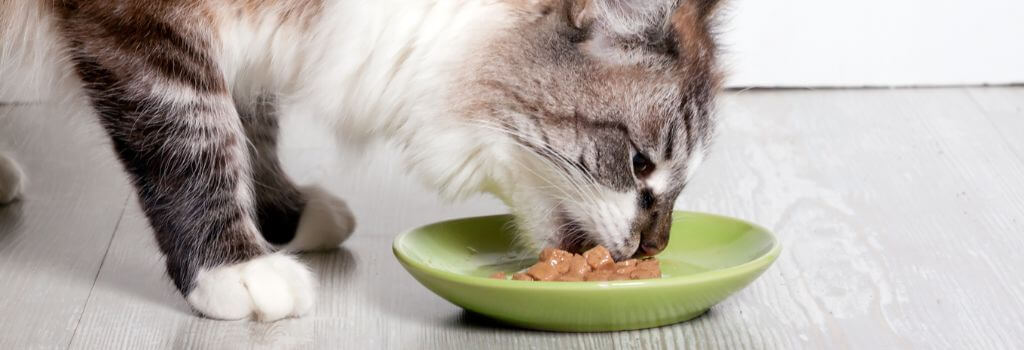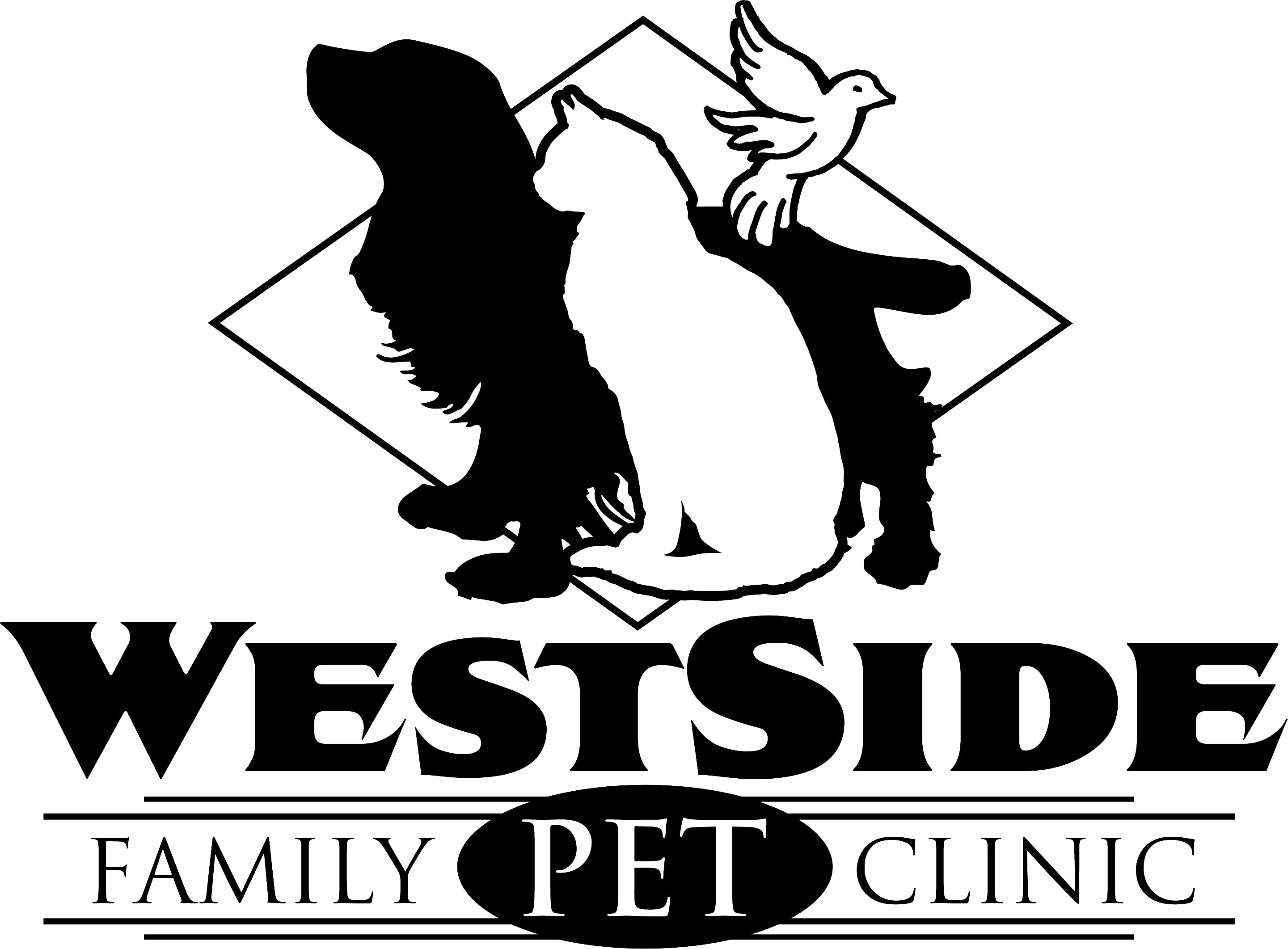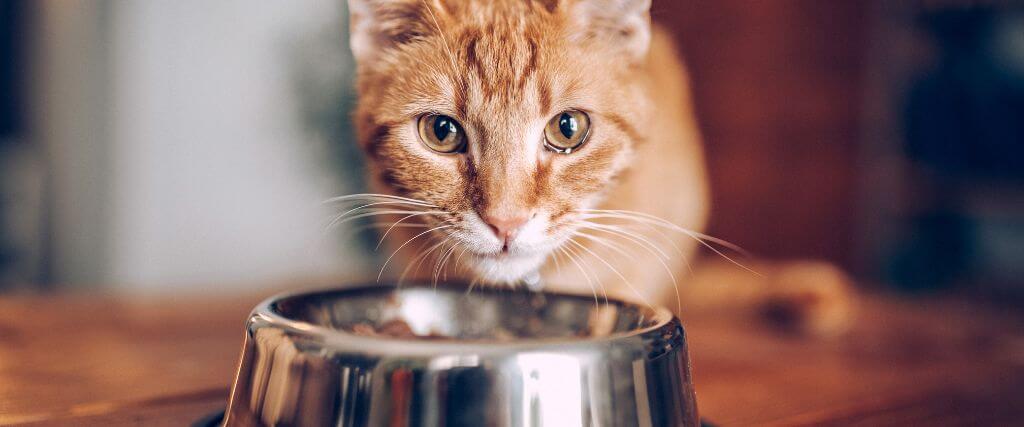As a cat owner, you’ve probably wondered, “Can my cat eat that?” while your cat chomps away on something they found behind the fridge. Whether it’s a piece of fruit, a bite of your dinner, or a curious nibble on a houseplant, our feline friends often show interest in foods and items that aren’t typically part of their diet.
Understanding what’s safe and what’s not can be tricky. In this blog, we’ll answer some of the most common “Can my cat eat that?” questions, providing you with the knowledge you need to keep your curious kitty healthy and happy. So, let’s dive into the world of feline nutrition and safety, and clear up any confusion about what’s truly safe for your cat to eat!
Cat Diet Basics
Before we get into more non-traditional snacks for your cat, let’s go over what your feline actually needs to be healthy first.
Cats are obligate carnivores, meaning they are designed to eat primarily meat. Their bodies require nutrients that are most readily available in animal tissues. A proper diet for a cat should be high in protein, moderate in fat, and low in carbohydrates. Essential nutrients for cats include taurine, arachidonic acid, vitamin A, and vitamin D, which they cannot produce in sufficient quantities on their own and must be obtained from their diet.
Quality commercial cat foods are formulated to provide a balanced diet, but always look for products that list meat as the first ingredient. Fresh water should always be available to keep them hydrated. Providing your cat with a diet that meets these nutritional needs will help them live a healthy and vibrant life.

Can My Cat Eat…
1. Can cats eat chocolate?
Absolutely not! Chocolate contains theobromine and caffeine, both of which are toxic to cats. Even small amounts can cause symptoms like vomiting, diarrhea, rapid breathing, and seizures.
2. Can cats eat grapes or raisins?
No, grapes and raisins can cause kidney failure in cats. Symptoms may include vomiting, lethargy, and abdominal pain. It's best to keep these fruits out of reach.
3. Are onions and garlic safe for cats?
No, onions and garlic can damage a cat's red blood cells, leading to anemia. Whether raw, cooked, or in powdered form, these foods are highly toxic to cats.
4. Can cats drink milk?
Many cats are lactose intolerant, which means dairy products can cause digestive issues such as diarrhea and upset stomach. Opt for specially formulated cat milk if you want to treat your cat.
5. Is avocado safe for cats?
While small amounts of avocado might not be harmful, it contains persin, which can be toxic in larger quantities. It's better to avoid feeding your cat avocado.
6. Can cats have alcohol?
Absolutely not! Alcohol is extremely toxic to cats and can cause severe liver and brain damage. Even a small amount can be fatal.
7. Can cats drink coffee?
No, caffeine is dangerous for cats and can lead to rapid heart rate, tremors, and even death. Keep coffee and other caffeinated beverages away from your feline friend.
8. Are bones and fat trimmings safe for cats?
Feeding your cat bones or fat trimmings can lead to digestive upset and pose a choking hazard. Cooked bones are particularly dangerous as they can splinter and cause internal damage.
9. Can cats eat raw eggs?
Raw eggs carry the risk of bacterial infection and contain avidin, which can lead to biotin deficiency. It's safer to avoid feeding your cat raw eggs.
10. Is raw fish okay for cats?
Feeding your cat raw fish can result in thiamine deficiency, leading to neurological problems. Cooked fish is a better option but should be given in moderation.
11. Can cats eat dog food?
Dog food lacks the essential nutrients that cats need, such as taurine. Feeding your cat dog food regularly can lead to malnutrition.
12. Can cats eat tuna?
While an occasional bite of human-grade tuna is safe, it should not be a regular part of your cat's diet. Tuna lacks essential nutrients and too much can lead to mercury poisoning.
13. Is bread safe for cats?
Bread in small amounts is generally safe, but yeast dough can expand in a cat's stomach, causing serious health issues. Avoid feeding your cat raw dough.
14. Can cats eat peanut butter?
Peanut butter is safe in small amounts but is high in fat. It should be given as an occasional treat rather than a regular part of the diet.
15. Are citrus fruits good for cats?
Citrus fruits can cause gastrointestinal upset in cats. The essential oils and compounds found in citrus can also be toxic, so it's best to avoid them.
16. Can cats eat nuts?
Nuts are high in fat and can be harmful to cats. Certain nuts, like macadamia nuts, are especially toxic and should be avoided entirely.
17. Can cats eat candy or gum?
Candy and gum often contain xylitol, which is highly toxic to cats. Even small amounts can lead to liver failure and death. Keep all sweets out of your cat's reach.
18. Can cats eat bacon or ham?
Cured meats like ham and bacon contain high levels of sodium. High quantities of sodium can lead to sodium ion poisoning which can result in death on occasion. Even just the grease from bacon can cause intestinal inflammation and a subsequent pancreatitis. These items should never be on the menu for your cats.

Snacks for Your Cats
While cats should primarily eat a balanced diet of commercial cat food, there are some human foods that can be safe and enjoyable snacks for them. Here are a few:
- Cooked Meat: Small pieces of cooked chicken, turkey, or lean beef can be a great protein-rich snack for your cat.
- Fish: Cooked fish, like salmon or tuna, can be a tasty treat, but it should be given in moderation to avoid excessive mercury intake.
- Eggs: Fully cooked eggs are a good source of protein and can be offered as an occasional treat.
- Pumpkin: Plain, canned pumpkin (not the spiced pie filling) can be beneficial for a cat's digestion and is a tasty treat.
- Blueberries: These small fruits are safe for cats and can provide antioxidants. Offer them in small quantities.
- Carrots: Cooked carrots can be a crunchy snack that provides vitamins, but make sure they are soft enough to avoid choking hazards.
- Bananas: Small pieces of banana can be a sweet and safe treat for your cat in moderation.
- Cheese: Some cats can enjoy small amounts of cheese, but be cautious as many cats are lactose intolerant.
Always check with your veterinarian to get their opinion for your unique cat and what snacks would be best for them. Any snacks given should always be in small quantities and introduced slowly so you can keep an eye out for any adverse reactions. Remember, these treats should only complement a balanced diet, not replace it.
Understanding Your Cat’s Appetite
It's been fun exploring these common "Can my cat eat that?" questions with you. While it's great to know which human foods are safe for your feline friend, it's always best to stick with food specifically formulated for feline nutrition. These specialized diets ensure your cat gets all the essential nutrients they need to stay healthy and happy.
If you're ever in doubt about whether a certain food is safe for your cat, consult with your veterinarian or play it safe and put it away for now. Here's to keeping your curious kitty safe and well-nourished!
If you have questions and you'd like to reach out to us, you can call us directly at (402) 383-1850, or you can email us at [email protected]. Don't forget to follow us on social media Facebook, Instagram.




